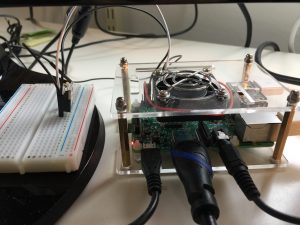 The Illiac IV (https://en.wikipedia.org/wiki/ILLIAC_IV) was the biggest and baddest supercomputer of its time in the 1970s. It was eventually installed at NASA Ames Research Center in the San Francisco Bay Area and was reported to have been 13 times faster than any other computer at that time. Although fast, it was very hard to use and many of the scientists shunned it in favor of more conventional computers. So, it was relatively easy to get access if you could put up with it. As a beginning grad student I had no idea what was smart and what was not, so of course I said “sure” when my advisor asked me to consider using it for my thesis. None-the-less, it was my daily tool for four years and I learned a lot about fluid mechanics and parallel computing.
The Illiac IV (https://en.wikipedia.org/wiki/ILLIAC_IV) was the biggest and baddest supercomputer of its time in the 1970s. It was eventually installed at NASA Ames Research Center in the San Francisco Bay Area and was reported to have been 13 times faster than any other computer at that time. Although fast, it was very hard to use and many of the scientists shunned it in favor of more conventional computers. So, it was relatively easy to get access if you could put up with it. As a beginning grad student I had no idea what was smart and what was not, so of course I said “sure” when my advisor asked me to consider using it for my thesis. None-the-less, it was my daily tool for four years and I learned a lot about fluid mechanics and parallel computing.
In more recent times there has been a list of the “TOP500” supercomputers in the world (https://www.top500.org/) and these are measured by running a standard software (benchmark) package called High-Performance Linpack (HPL), that will tell you how fast your computer runs. Modern computers are SO MUCH faster than the old machines, but I wondered how much faster than that trusty old Illiac IV. The Illiac is long gone and no one ever ran HPL on it, but estimates placed its speed at about 200 MFLOPS, or 200 million “floating-point” operations per second. I’ve been exploring a little $35 single board computer recently called the Raspberry Pi. So I built HPL on top of a communications library called MPICH and tested the little computer. I expected some big changes, but I was shocked. The little computer clocked 3.35 GFLOPS, or over 3 billion floating-point operations per second, 15 times faster than the fastest machine of the 70s! It’s simply astonishing how far modern computers have come. The fastest modern supercomputer runs almost 100 PFLOPS, or 100 million-billion flops/sec. That’s 500 million times faster than the old Illiac IV! Even my little Raspberry Pi can easily do computations that were the subject of my whole thesis!
